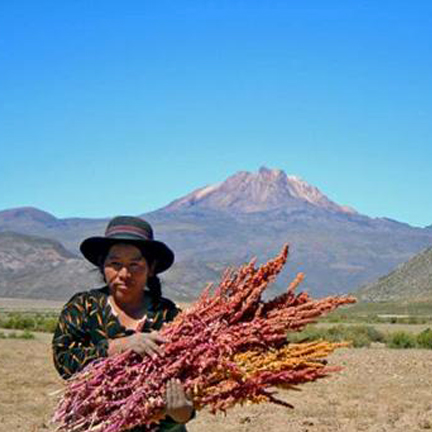A UN-funded project in the high plains of Bolivia relied upon traditional community knowledge of weather
to improve crop production and avert risks imposed by climate change. The emphasis on applying women’s knowledge of the environment — with regard to proper crop and seed storage, for example — was key to the project’s success. As a result of this gender-sensitive collaboration, more than 100 context-specific agricultural technologies and practices were either introduced or re-introduced to the community to lessen the potential effects of climate change.
